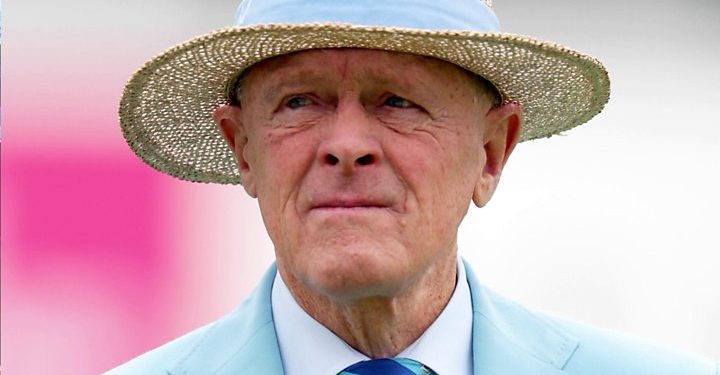London: His knighthood is being questioned owing to an old domestic violence case in France but the legendary Englishman Geoffrey Boycott says he ‘doesn’t give a toss’ as he has been honoured solely for his cricketing success.
After he was knighted by former British Prime Minister Theresa May, Boycott was severely criticised by UK’s senior female MP Harriet Harman, who asked for a review of the “baffling decision to honour a man who was convicted in a French court in 1998 for assaulting his then-girlfriend, Margaret Moore”.
Boycott reacted angrily and was quoted as saying by BBC Radio 4’s Today programme that he ‘didn’t give a toss’ about criticism from anti-domestic abuse campaigners, including Adina Claire, the co-acting chief executive of Women’s Aid, who described his honour as ‘extremely disappointing’.
“I don’t give a toss about her (Claire), love. It was 25 years ago. You can take your political nature and do whatever you want with it. You want to talk to me about my knighthood, it’s very nice of you to have me, but I couldn’t give a toss,” he said.
“Twenty-five years ago, love, in a French court, she tried to blackmail me for 1million pound. I said no, because in England if you pay any money at all, we think: ‘Hang on, there must be something there’,” he said.
“I said: ‘I’m not paying anything’ … I’m not sure I’d actually got a million at the time,” he added.
Boycott said the knighthood was a recognition of his cricketing achievement. He made 8114 runs for England from 108 Tests and later turned into a respected commentator.
“This is just recognition of my cricket,” he said. “(It’s) very nice, very honoured, thankful to Theresa May and I thank all the people that supported me and cared for me throughout my cricketing career.”
Boycott, who was fined 5,000 pound and handed a three-month suspended jail sentence for the incident at a French hotel in 1996, was knighted in May’s resignation honours list alongside another former England opening batsman Andrew Strauss.
Boycott has always denied the charge.
“It’s a court case in France where you’re guilty, which is one of the reasons I (didn’t) vote to remain in Europe – because you’re guilty until you’re proved innocent. That’s totally the opposite from England and it’s very difficult to prove you’re innocent in another country and another language,” he said.
“Most people in England don’t believe it. I didn’t do it. Move on. It’s a cross I have to bear, right or wrong, good or bad, I have to live with it. And I do, because I’m clear in my mind and I think most people in England are that it’s not true,” he added.
PTI







































